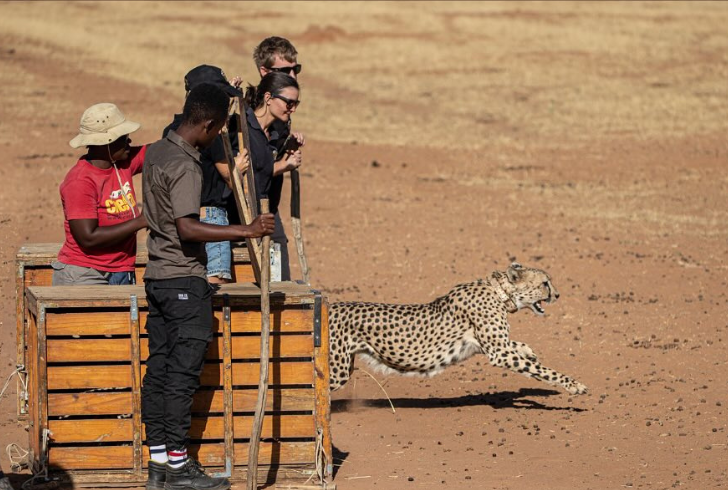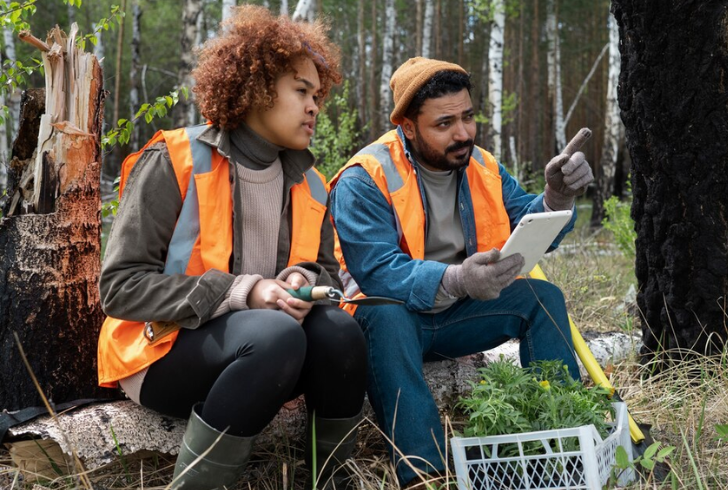A career in conservation is not simply about protecting wildlife—it’s about understanding the deep connection between humans and the environment, and the role that communities play in preserving our planet’s biodiversity.
As we move towards a future that places more importance on sustainability, this field is becoming a vital aspect of global efforts to safeguard natural habitats and the species that inhabit them.
Building Community and Empathy in Conservation
Conservation efforts require more than just knowledge about wildlife; they also demand a strong sense of community and empathy. Empathy allows conservationists to relate to the communities they work with, fostering collaboration and understanding. Whether advocating for the preservation of ecosystems or promoting sustainable practices, professionals in this field are tasked with helping others see the intrinsic value of wildlife and natural resources.

Creating a successful career in conservation is also heavily tied to building strong relationships within the community. By working closely with local populations, conservationists are able to develop strategies that not only protect wildlife but also benefit the people who live near and depend on these natural resources.
Overcoming Obstacles and Developing Resilience
A career in conservation can come with significant challenges. From limited funding to political roadblocks, those in the field often face obstacles that test their commitment. However, resilience is one of the core qualities needed to thrive in this profession. The ability to push through adversity, remain focused on long-term goals, and continue advocating for the environment is what sets successful conservationists apart.
Resilience in this field isn’t just about bouncing back from failure; it’s about adapting to changing circumstances. As climate change and other environmental threats evolve, so too must the approaches used in conservation. This requires a willingness to learn continuously and to apply innovative solutions to complex problems.
The Importance of Mentorship in Conservation Careers
Mentorship plays a key role in developing a successful career in conservation. Many professionals who enter this field face difficulties in finding their footing due to a lack of hands-on experience or limited access to educational resources. Through mentorship, aspiring conservationists can gain valuable insight, learning from those who have already navigated the complexities of the profession.
Mentors can also provide guidance on how to effectively engage with communities, apply scientific knowledge in real-world settings, and overcome the specific challenges that come with conservation work. This not only helps build the next generation of conservationists but also ensures that the knowledge and expertise gained over years of practice are passed on effectively.
Expanding Representation in Conservation
Historically, conservation has not been a field that many individuals from underrepresented communities have pursued. Barriers such as financial limitations and a lack of representation have contributed to this. However, it’s crucial to ensure that diverse voices are included in conversations about the future of our planet.
Encouraging people from all backgrounds to pursue careers in conservation is essential for creating holistic solutions to environmental problems. Representation allows for more inclusive conservation strategies that take into account the needs and perspectives of various communities around the world.
Leveraging Technology for Conservation

In today’s digital age, technology has become a powerful tool for promoting conservation efforts. Social media platforms, for example, allow conservationists to share their work with a broader audience, raising awareness about wildlife preservation and the importance of environmental stewardship. By making wildlife education accessible through engaging content, young people from diverse backgrounds can be inspired to consider a career in conservation.
Additionally, smartphones and other technology make it easier for conservation professionals to gather data, track species, and monitor ecosystems. This technological shift has opened up new avenues for careers in conservation, with positions that combine environmental science and data analysis to create effective conservation strategies.
The Future of Conservation Careers
The future of conservation is one that demands innovation, resilience, and inclusivity. As environmental challenges continue to escalate, conservation professionals will need to expand their skillsets and embrace new approaches to protecting wildlife and ecosystems. By focusing on community engagement, developing empathy, and ensuring diverse representation in the field, conservationists can create meaningful and lasting impacts.
At its core, a career in conservation is about more than just saving wildlife—it’s about ensuring a sustainable future for generations to come. Through collaboration, mentorship, and the strategic use of technology, today’s conservationists are shaping a future where both people and nature can thrive.




